Tuesday Feb 17, 2026
Tuesday Feb 17, 2026
Tuesday, 16 October 2018 00:38 - - {{hitsCtrl.values.hits}}
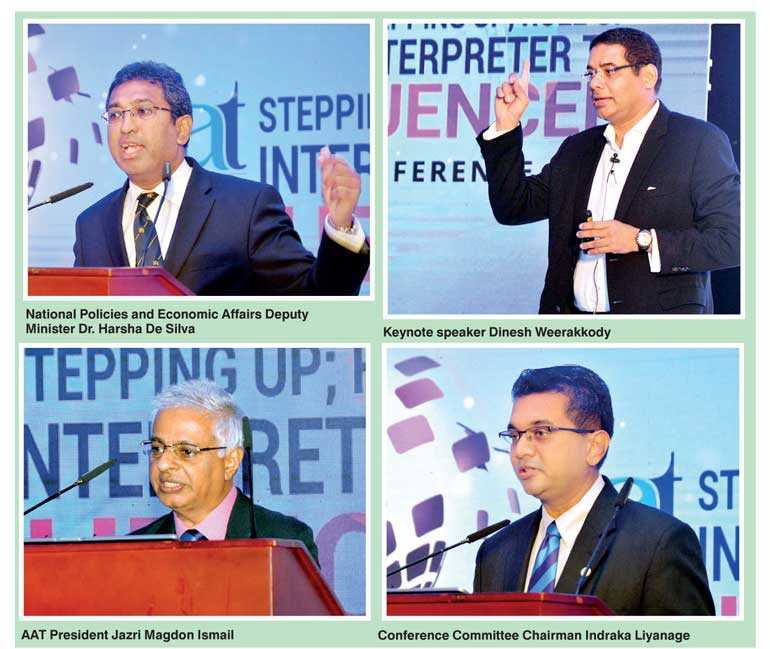
By Divya Thotawatte
The depreciation of the rupee can be offset by Central Bank measures but this will be unsustainable in the long term with strong economic growth needing to be underpinned by greater exports and investment being the only the solution to the problem, a top official said yesterday.
Deputy Minister of National Policies and Economic Affairs Dr. Harsha De Silva speaking at the inauguration of the AAT Sri Lanka Conference 2018 titled ‘Stepping Up; Role of Interpreter to Influencer’ addressed the challenges ahead for Sri Lanka’s economy with special emphasis on the problems created by the depreciating rupee.
“Everyone’s asking me what’s up with the rupee. What influences the direction of our currency is a long-term thing. The Central Bank may sell a few hundred million dollars and try to hold the currency at a particular level, and the rupee will depreciate by x amount. However, the Central Bank is essentially powerless to manage the currency in the long-term. It has some influence in the short-term, but that too is limited,” he said.
To bolster the economy and put growth on a sustainable footing the Government will have to continue implementing policies that increase growth and attract investment to the country. He advocated for stronger liberalisation, backed by better policies to support companies to expand business overseas and widen Sri Lanka’s narrow basket of exports.
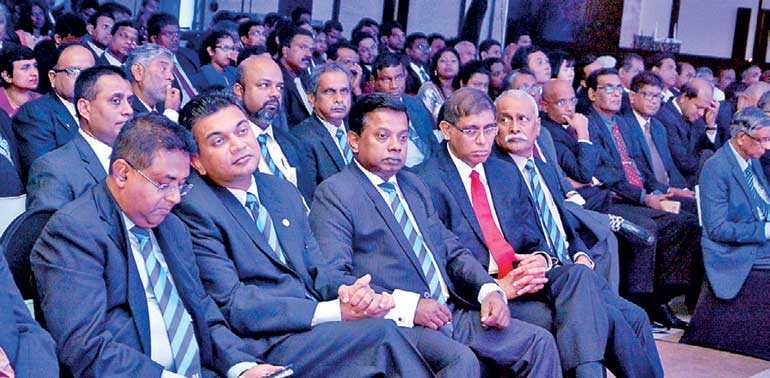
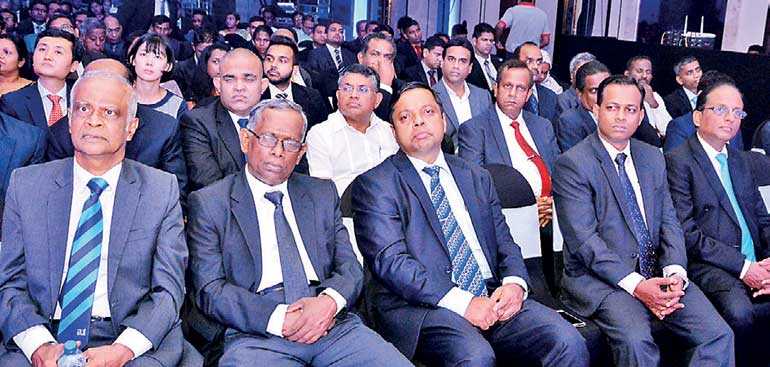
Driving global engagement
“The driver in the long term is our engagement with the world. How much we buy and how much we sell to customers outside this country. What has been constant for the last few years is that our exports to GDP has been falling. In 2000 we exported 39.5% of goods and services as a ratio of GDP, by 2015 this fell to 20% of GDP, and by 2017 it was 22% GDP. No country of our make and model, meaning a small open economy, with just a 20 million market, can never expect to have a strong currency if our exports is falling this way.”
Dr. de Silva recalled that during low interest rates, Sri Lanka went on a borrowing spree but the Government during that time failed to invest in tradable goods and other projects that would increase revenue. This debt fuelled growth was unsustainable and eventually led to severe economic hardship experienced presently.
“What is important to us, is the fact that we’ve got to change the direction of the economy’s slide. If you can influence that change then that is the most important thing for all of us. We can’t help the US Federal Reserve increasing its interest rates, we can’t help the US sanctions on Iran, we have no influence. What we can influence is how we restructure our economy in such a way that we’re able to move from a non-tradable economy to a tradable economy. That is the influence you can make. You have to influence the company to move towards exports. No amount of influence can change what has already happened, but we can influence the future. Our future lies in the change that you, and we all as a society, as an economy will have to make.
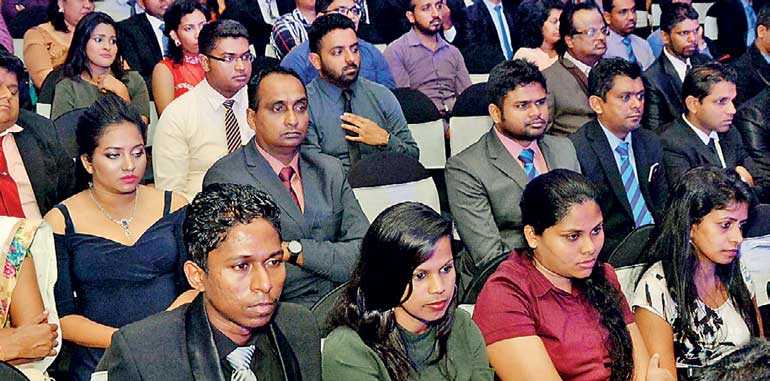
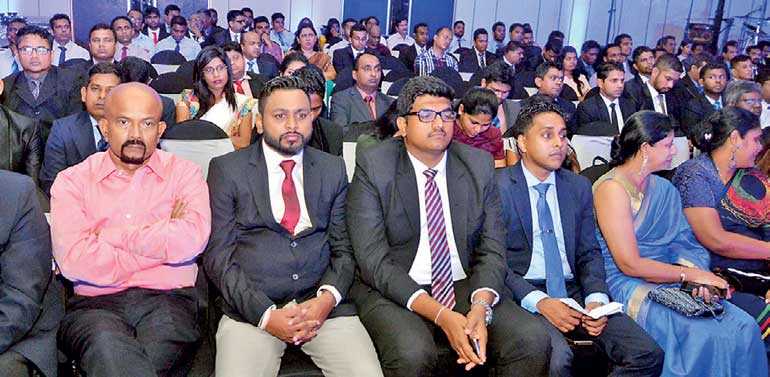
“Those who have understood the need to compete to create a tradable economy in their country has succeeded. Those who put money to move from simple to complex products have succeeded. Those who have the vision to say our borders are open for professionals to come have succeeded. Countries like Singapore attract talent, the most demanded talent is ability to solve complex problems, if everyone who has the ability to solve complex problems is taken by Singapore and other places who are we left with?” he questioned.
Dr. de Silva was upbeat on the economic potential of evolving new products and attracting expertise from outside Sri Lanka to foster innovation to drive new exports and investment that would lead to growth. For this effort to be successful he insisted that competition needs to be increased and companies need to be encouraged to move to new services and products, rather than import substitution that would be profitable under a protected economy.
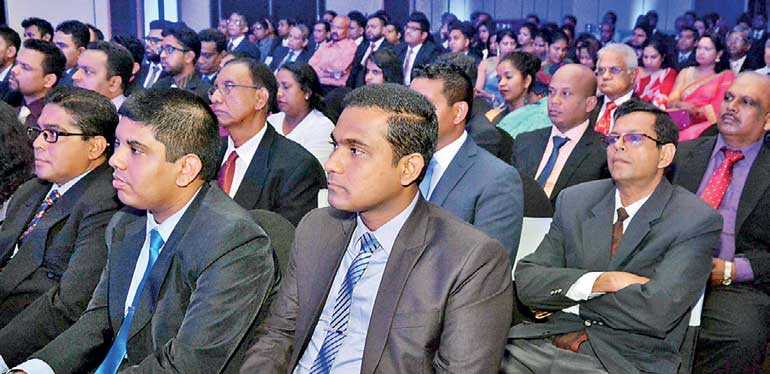
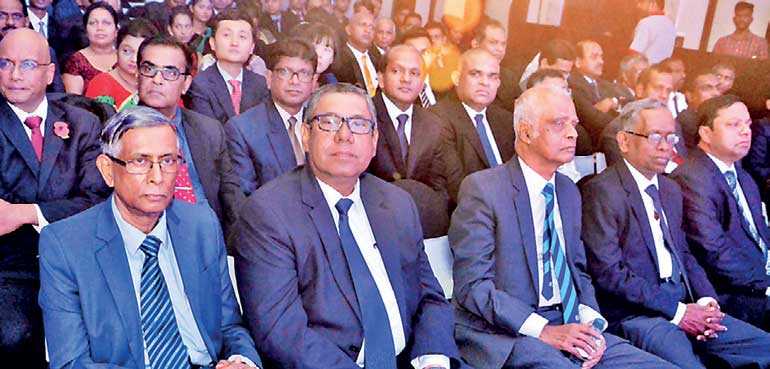
Competition for productivity
“No matter where you sell your products or services, it will be competitive. So we have to liberalise, we have to do what are called structural reforms that enhance productivity. That is the key. We have to shift the structure of our economy from a non-competitive, non-tradable one to a competitive tradable one. That is the change that you require. That is the influence you must bear upon your stakeholders.
“We have to create a trade emporium in this country. We are geographically located at the best places we can ever be, for the next 20-30 years, this is where everything is going to happen. The Indian Ocean will contain 35% of global production. Therefore, unless we build a competitive economy, there is no future.”
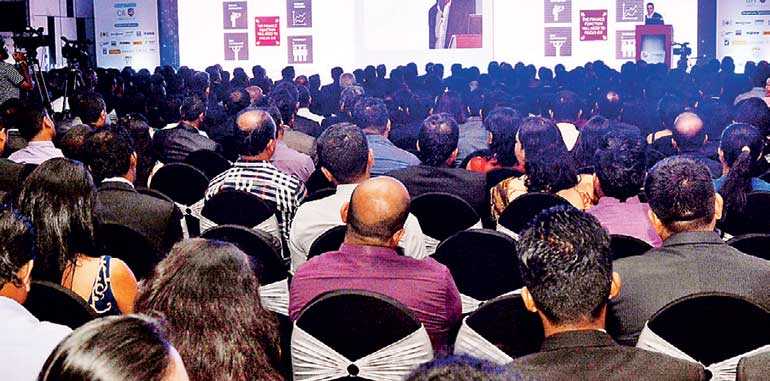
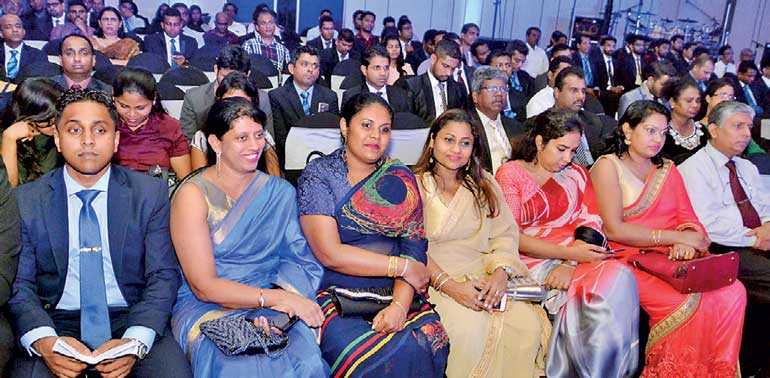
Game-changing technology
Delivering the keynote address at the inauguration ceremony, National Human Resource Development Council Chairman Dinesh Weerakkody emphasised on the importance of adapting and moving on as technology continues to evolve and dominate the world. “Technology is changing the game; 65% of the students entering primary school will end up having jobs that are non-existent today and 375 million people will need to learn new skills and switch jobs by 2030,” he said.
He said that to survive the future, people would have to develop the most demanding skills like complex, problem solving, critical thinking, creativity, and people management. He said that the finance function needed to be evolved beyond the financial statements and it should be driving digitalisation, strategy execution and stakeholder management. Weerakkody also stated that although most jobs would dissolve in the face of evolving technology, opportunities for finance professionals would only increase. He said that financial reporting, providing insights and giving predictions were key factors that would be important in the future.
AAT President Jazri Magdon Ismail who also spoke at the event stated: “Speeds of innovation, channel disruption and the legal and regulatory landscape changing rapidly demand that finance professionals must transform into thought leaders and only become advocates for change.”
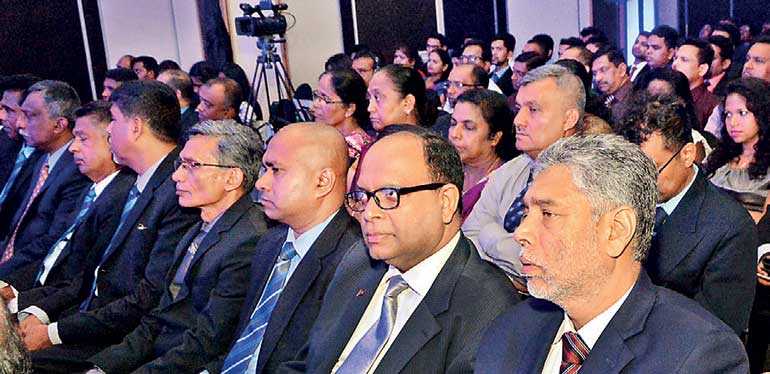
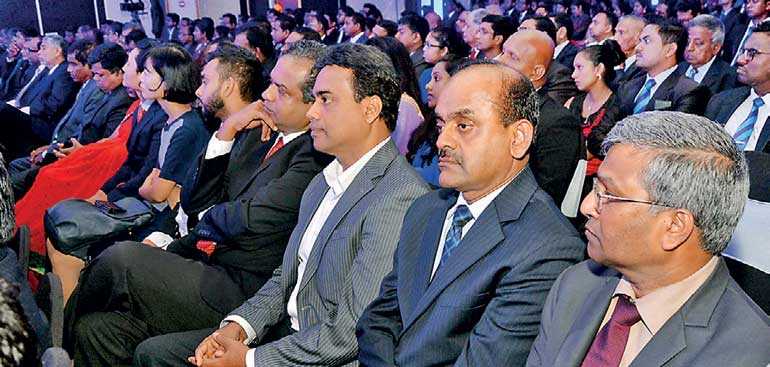
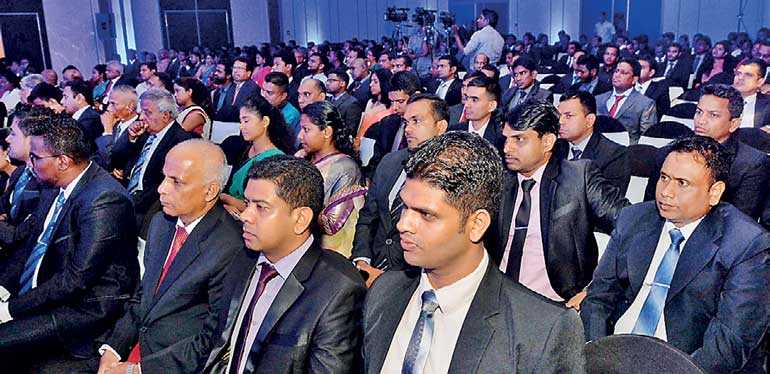
- Pix by Upul Abayasekara